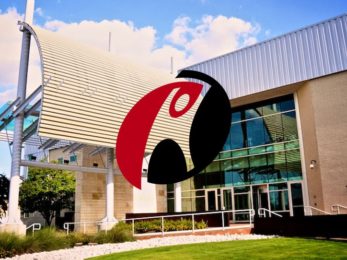 AI outfit ThoughtSpot has completed its acquisition of Mode Analytics, the modern Business Intelligence (BI) platform that brings data teams and business teams together.
AI outfit ThoughtSpot has completed its acquisition of Mode Analytics, the modern Business Intelligence (BI) platform that brings data teams and business teams together.
The deal was sorted out with a $200 million cash and equity transaction and strengthens ThoughtSpot’s position as a key player in the next generation of collaborative, AI-first business intelligence (BI).
ThoughtSpot and Mode Analytics deliver a complete platform spanning the spectrum of modern BI needs, from ad hoc novel analysis with a code-first approach, to natural language, self-service exploration and AI-driven monitoring.
As a result of this acquisition, ThoughtSpot’s ARR will grow to over $150 million, and with minimal customer overlap, new growth opportunities remain ahead for the combined company, including the potential to further scale its broad channel partner alliances and geographic footprint.
ThoughtSpot is also committing to investing resources to expand Mode’s current offerings, giving data professionals even more capabilities to utilize code-first approaches across their workflows, including SQL, R, and Python.
Thoughtspot CEO Sudheesh Nair said the demand for putting the power of AI to work is accelerating, and the joined forces of ThoughtSpot and Mode means data teams can confidently bring generative AI capabilities to business users – enter the new era of business intelligence.
“Bridging the gap between data teams and business users in a unified, dependable, governed way, this is something the market has needed for a long time,” he said.
“The beauty of this acquisition is we’ve tackled the same core problem in BI – making it useful to every employee, technical and nontechnical – from opposite ends. We are committed to continuing to push the boundaries on both ends of the spectrum. With the incredible talent and knowledge Mode’s team brings, especially for data teams, we’re going to leverage our combined R&D muscle to make Mode’s offerings even stronger for data teams.”
Mode CEO Gaurav Rewari said that in his two decades working in the BI space, it was the first time self-service analytics is possible for any user.
“We’ve reached an inflection point with the rise of data teams at companies of all sizes, from digital natives to the global 2000; innovations in search pioneered by ThoughtSpot that have served as the great unlock for business users; and the proliferation of generative AI, which we’re collectively committed to infusing everywhere in our combined platform,” he said.
 SoftwareOne has snubbed Bain Capital’s second acquisition offer and is now apparently considering what it will do with its life.
SoftwareOne has snubbed Bain Capital’s second acquisition offer and is now apparently considering what it will do with its life.
 Security outfit BlueFort has signed a new partnership agreement with Noetic Cyber, a cloud-based continuous cyber asset intelligence and controls platform.
Security outfit BlueFort has signed a new partnership agreement with Noetic Cyber, a cloud-based continuous cyber asset intelligence and controls platform. Bain Capital has increased its offer for SoftwareOne Holding AG to 3.72 billion.
Bain Capital has increased its offer for SoftwareOne Holding AG to 3.72 billion. Security outfit Splunk has entered the hardware market using a select number of authorised partners to deliver its technology with high levels of customer support.
Security outfit Splunk has entered the hardware market using a select number of authorised partners to deliver its technology with high levels of customer support. More than 71 per cent of CMOs said they need more budget to fully execute their strategy in 2023, according to a Gartner survey.
More than 71 per cent of CMOs said they need more budget to fully execute their strategy in 2023, according to a Gartner survey. Daisy Corporate Services today announced it has helped Royal Holloway University London (RHUL) reduce its data centre footprint by 75 per cent and achieve energy savings of over 72 per cent with the implementation of a new virtual infrastructure solution based on HPE dHCI technology.
Daisy Corporate Services today announced it has helped Royal Holloway University London (RHUL) reduce its data centre footprint by 75 per cent and achieve energy savings of over 72 per cent with the implementation of a new virtual infrastructure solution based on HPE dHCI technology. Some big names in the channel are continuing to lay off staff, citing cliches like economic headwinds.
Some big names in the channel are continuing to lay off staff, citing cliches like economic headwinds. AI outfit ThoughtSpot has completed its acquisition of Mode Analytics, the modern Business Intelligence (BI) platform that brings data teams and business teams together.
AI outfit ThoughtSpot has completed its acquisition of Mode Analytics, the modern Business Intelligence (BI) platform that brings data teams and business teams together. Tata Group will build a gigafactory in Britain to manufacture batteries, as nations accelerate away from fossil fuel vehicles.
Tata Group will build a gigafactory in Britain to manufacture batteries, as nations accelerate away from fossil fuel vehicles. Cloudy Rackspace Technology today announced the launch of FAIR Learn as part of the overall Foundry for Generative AI by Rackspace.
Cloudy Rackspace Technology today announced the launch of FAIR Learn as part of the overall Foundry for Generative AI by Rackspace. According to the Financial Conduct Authority (FCA) head, financial services are getting prone to AI frauds.
According to the Financial Conduct Authority (FCA) head, financial services are getting prone to AI frauds.





